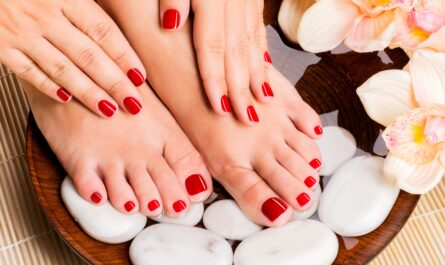Ancient civilizations across the world used scented oils, herbs, flowers and other natural ingredients to create fragrances not just for rituals and ceremonies but also for daily wear. While the ingredients and methods of creating perfumes have evolved tremendously over the centuries, their significance in cultural traditions and as a tool of personal expression remains as strong as ever.
History of Perfume
Evidence of perfume use dates back to ancient Mesopotamia, Egypt, China, India and Rome where perfumes played an important role in religious ceremonies and were considered offerings to the gods. Some of the earliest fragrances were made from plant extracts and essential oils.
– Ancient Egypt: Egyptian royalty are known to have worn many fragranced oils and floral scents dating as far back as 3500 BC. Common ingredients included rose, jasmine, iris, mint and orange blossom oils. Egyptians were also the first to distill fragrances.
– Ancient Rome: Fragrances gained popularity among the wealthy Romans who would have slaves attend to them with aromatic oils and essence during baths and meals. Roses, lilies, violets and citrus scents were commonly used. Potpourri perfume sachets became trendy during this time.
– Medieval Europe: As trade routes expanded during this era, new exotic floral and herbaceous scents made their way to Europe from Asia and the Middle East further enhancing fragrance traditions.
Evolution of Modern Perfume
The foundations of modern perfumery were truly laid in the late 19th century when synthetic aromatic compounds were developed that could replicate natural essences. This opened up new possibilities for complexity and consistency in perfume formulations. Some key developments:
– Large-scale Extraction: In the late 1800s, processes like enfleurage, solvent extraction and pressing allowed for mass production of essential oils and absolutes from floral sources.
– Synthetic Aromachemicals: In the early 20th century, the synthesis of aromatic molecules like ionones, methylionones and damascenone changed the fragrance industry forever.
– Concentration and Standardization: Innovation in alcohol-based extraction and formulation techniques led to more concentrated, consistent perfumes suitable for mass manufacturing.
– Niche and Designer Brands: Post World War 2 saw the rise of niche perfumery with brands crafting unique signature scents. Designers further popularised perfume as a fashion accessory.
Modern Usage of Fragrance
– Fine Fragrance: Eau de Fragrance And Perfume and Eau de Toilettes continue to be popular personal care products with seasonal launches and celebrity endorsements driving the market.
– Fragranced Consumer Goods: Air fresheners, car fresheners, laundry detergents, soaps, body washes etc. incorporated scents for an enhanced user experience and as a useful branding tool.
– Aromatherapy: The therapeutic usage of essential oils for stress, mood, sleep and well-being through methods like massage, aromalamps and diffusers has found wide acceptance.
– Food Flavouring: Many confectionery, dairy and beverage products employ fragrance compounds to impart or enhance their organoleptic properties.
New Frontiers in Fragrance
With rising demand for customization and a focus on eco-friendliness, fragrance industry is embarking on innovative paths.
– Sustainable Sourcing: There is a push for renewable, organically grown fragrance materials and reducing synthetic intermediate usage in production.
– Digital Personalization: AI and big data allow customers to design unique perfume blends online based on their preferences. These can be sampled and purchased.
– Atmospheric Scents: Hotels, retail stores and public spaces are experimenting with programmable, ambient fragrances to set the right mood.
– Phytocosmetics: Natural skincare products infused with essential oils offer aromatherapy benefits along with moisturization and healing properties.
From ancient rituals to modern lifestyle enhancers, fragrances have come a long way. With continuous refinement as well as completely new applications, perfumes are sure to remain an intrinsic part of human experiences, cultural traditions as well as global industries for many more centuries to come. Their ability to elevate moods, trigger memories and simply bring pleasure makes them a timeless entity.
Note:
1. Source: Coherent Market Insights, Public sources, Desk research
2. We have leveraged AI tools to mine information and compile it




